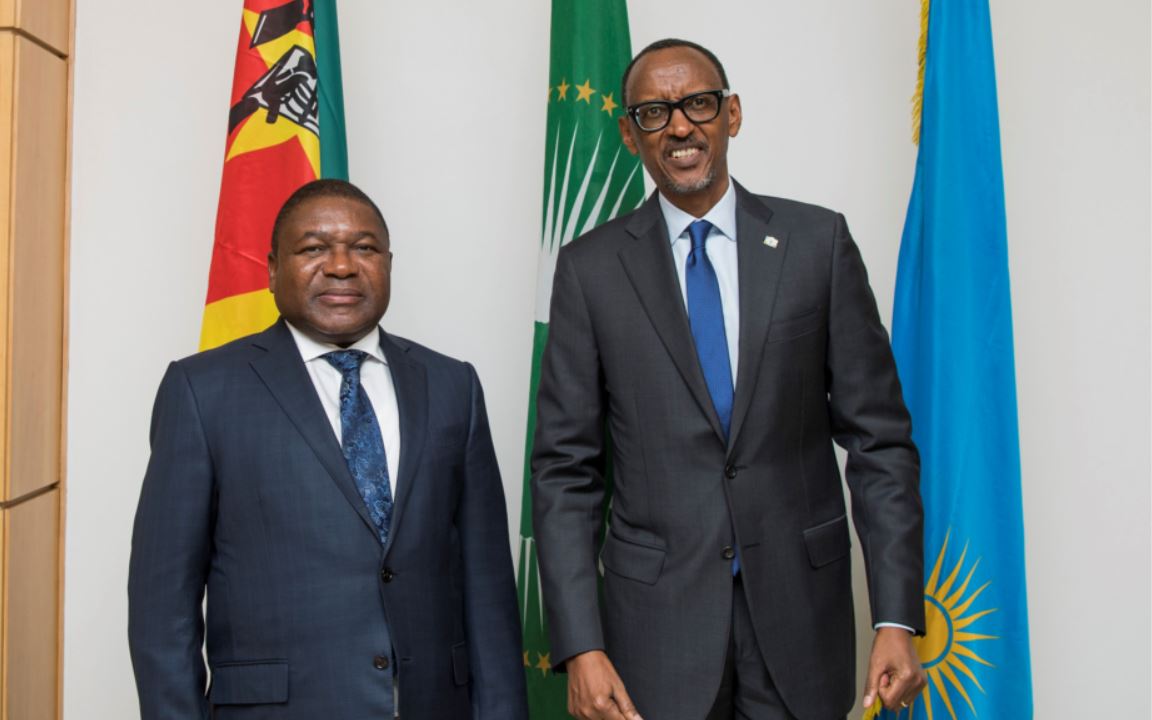After the success of its army in Mozambique, Rwanda expects economic rewards
Companies affiliated with the powerful Crystal Ventures holding company, the financial arm of Kigali's ruling party, are already present in Mozambique.

'Disciplined' and 'efficient'
Did France encourage this armed deployment in order to defend TotalEnergies' interests in Cabo Delgado? According to ARIA, a non-profit organization dedicated to research on climate and energy issues, the chronology of meetings between Paul Kagame, his Mozambican counterpart Filipe Nyusi and Patrick Pouyanné, the CEO of TotalEnergies, suggests so.
"France was in favor of an agreement between Rwanda and Mozambique," said Benjamin Augé, the author of the study "Mozambique: the security, political and geopolitical challenges of the gas boom" for the French Institute of International Relations (IFRI). "Filipe Nyusi also wanted to limit the role of the armies of the SADC [Southern African Development Community, whose soldiers are also deployed in the region] in order to reduce their influence. He also had doubts about their capabilities on this very particular terrain."
On October 20, 2022, an EU memo on the Rwandan intervention in Cabo Delgado stated that it could enable "the protection of political, security and economic interests." "The aim of this assistance is to consolidate peace and fight terrorism in Africa and elsewhere," explained Nabila Massrali, a spokeswoman for the European External Action Service, the EU's diplomatic arm. "When, in December 2022, the European Council announced its support for the deployment of the Rwandan army in Mozambique, it also announced other measures in favor of the armed forces of Mauritania [€12 million], Georgia [€20 million], Lebanon [€6 million] and Bosnia [€10 million]. There is always very precise monitoring to ensure that the funds are being used as initially planned. As far as Rwanda is concerned, it's a question of maintaining stability in Cabo Delgado."
According to the NGO Armed Conflict Location & Event Data Project (ACLED), the IS-affiliated Ansar Al-Sunna jihadist rebellion has claimed almost 3,300 lives in four years, half of them civilians, and displaced 800,000 people.
"Rwandan soldiers are much appreciated by the Mozambican population," asserted Le Monde writer and former diplomat Jean-Christophe Rufin, the author of a report commissioned by TotalEnergies on the socio-economic consequences of the Mozambique LNG gas project, in which the French hydrocarbon giant holds a 26.5% stake. "They are disciplined, efficient in their interventions, and their barracks are very well managed." In his report, however, Rufin recommended a review of the relationship between Mozambique LNG and the Mozambican defense forces, which is the source of numerous abuses, according to several local NGOs. TotalEnergies has informed Le Monde that "a dialogue has been initiated with the Mozambican authorities to this end."
The precedent of the Central African Republic
In the short to medium term, could private companies from Kigali come to profit from the intervention of Rwandan soldiers? At the end of February, Radar Scape, a Rwandan company that specializes in security, won an $800,000 contract for housing restoration.
"The situation is rather vague. Nothing has been established yet," said Augé. "But after the Rwandan army's success, TotalEnergies won't be able to deny the Rwandans their share of the cake."
At the end of his speech in Mozambique, Kagame told his soldiers that Rwanda must "now continue to protect and rebuild this country." Two years later, his military diplomacy has given him a certain political influence on the ground, as is true in the Central African Republic. According to the Rwandan Ministry of Defense, 2,100 soldiers are currently deployed there as peacekeepers, as are a further 1,200 as part of a bilateral agreement to support and train Central African forces. In addition, over a hundred Rwandan companies are currently registered in Bangui. In 2019, there were only around 20.
[...]
> Read the full article on Le Monde.fr

Media:
Share







